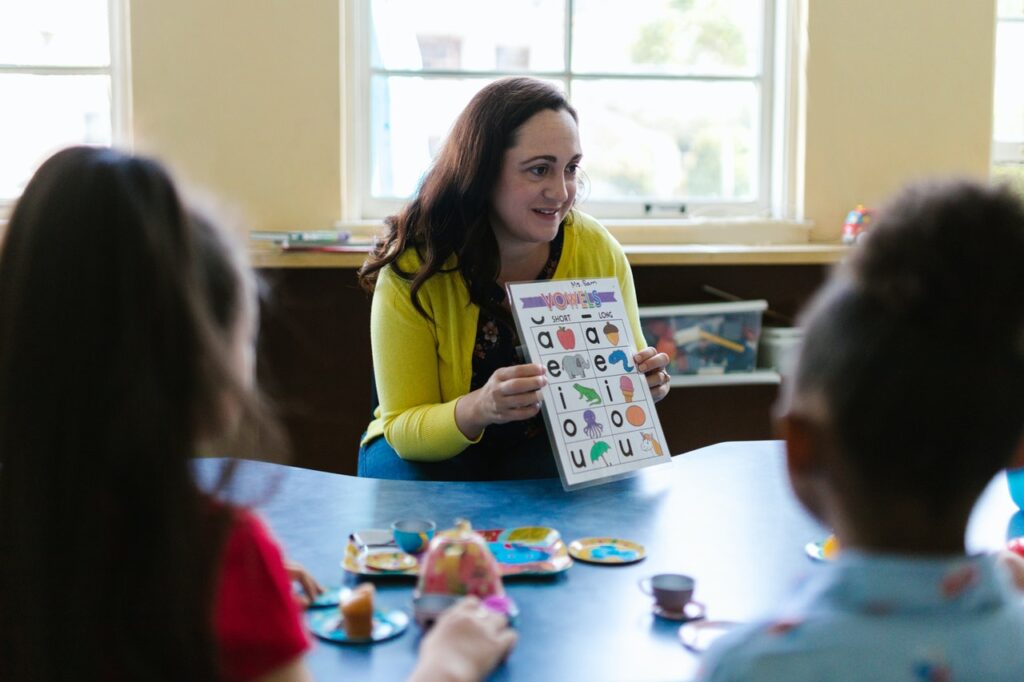One common concern while working with a tutor is determining how long each session should last. Once again, strike a compromise between your own preferences and the needs of your business.
Learning takes as long or as little time as it takes the individual, so if you've been at it for 30 minutes and still haven't made any progress, it might be time to call it a day.
Session length should be adjusted based on the individual's availability and the desired outcome. However, you are welcome to return at a more convenient time.
Whether it's in a single topic or across the board, tutoring helps pupils improve their knowledge and abilities. If you could sum up your mission statement, what would it be? Is it so that you can better organise your time and study more effectively?
Do you wish to practise methods that have been shown to increase memory capacity? Or perhaps you're concerned about your child's social development at school and want to help them connect with their instructors and classmates.
People may seek out tutors for a variety of reasons. No matter what you hope to achieve by the end of each session, you should talk about it beforehand. This information will be utilized by a tutor to tailor a programme to the student's specific requirements.
How Much Tutoring Do You Need?
Several factors affect how much money a student will need for tuition:
- The lower their existing academic performance, the more work will be required to raise it.
- The more they desire to achieve, the harder they'll have to work to get there.
- Level of Education: There is a direct correlation between the difficulty of the target language and the level of seniority of the student.
- Work ethic: If a student lacks a strong sense of dedication and motivation, then he or she will have to put in more time and energy to succeed.
- Their school's requirements: They will have to work harder to succeed in school if their classes and homework are moving quickly.
- The more quickly they desire to succeed, the harder they will have to work.
Each student's situation and the factors mentioned above will evolve over time, as will the amount of coaching they require.
To achieve success, you must:
Truthfully, if a student truly cares about their performance, then simply surviving the coursework is not enough. They need to:
- Spend as much time as you need to fully grasp each idea, even the seemingly insurmountable written difficulties, to the point that you could describe them to someone else.
- Spend time every week reviewing and enhancing your weak spots.
- Acquire and ingrain efficient methods of learning and time management
- Students should take timed practise exams on a regular basis to hone their exam-taking skills, such as how to manage their time effectively and stay calm under pressure. as well as, we should probably practise what we preach.
The common experience of being "stuck":
This is the most common scenario for math students: a tutor explains a concept, the student "gets it," and they are able to solve some problems on their own. Then the instructor walks away, but the pupil still "gets stuck" when they try to go without more assistance.
They are stuck on the current homework assignment and must wait until the following tutorial to learn how to go forwards. The next day at school, they aren't feeling quite as confident because they couldn't do some of the assigned homework. Confidence issues make them struggle in class. A student's rate of improvement and sensation of progress will both suffer greatly from this type of encounter.
Perhaps this is occuring because the tutoring session is so lengthy due of the student's many unanswered queries. Maybe the student was in such a rush to go through as much information as she could rather than absorbing as much material as possible because there isn't enough time to actually slow down and assure deep grasp for every topic of that class. Perhaps the tutorial did not provide for sufficient practise time.
"Getting through" content is ineffective since it does not foster understanding. And when the learner is forced to attempt and figure things out all by themselves, it can be very discouraging.
Alright, so how much help would you recommend for my kid? Standard choices include the following:
One Hour Twice a Month
This choice is best for pupils who are generally succeeding but occasionally struggle. It's a chance for the instructor to guide the student through less pressing issues and keep them from falling too far behind. They can also work together on exam preparation and other non-essential issues.
One Hour, Once a Week
In most cases, a weekly tutoring session of one hour will be sufficient to assist a student master the material covered in the previous week's class and prepare for the upcoming week's assignments. One hour of tutoring may not be enough to aid a student who is already falling behind the rest of his or her class.
Also, if your kid wants to make major or rapid progress, an hour probably isn't going to cut it. The tutor's responsibilities include, but are not limited to: addressing all inquiries, fostering genuine understanding, revising, checking revision, reviewing tests, and conducting mock exams. Again, for high school students, an hour is simply not enough time to get everything done on a regular basis.
Students in elementary school who aren't struggling too much, as well as those in high school who just need a modest improvement, will benefit most from this option.
1 hour and 30 minutes in a Week
This is quite similar to the weekly choice in that it only occurs once a week and requires minimal effort on the part of the manager. However, the tutor can take their time as they see fit with that additional half an hour.
This allows the tutor to take their time with a student when they seem to be struggling with a concept or question so that the learner can have that "aha!" moment of realisation and go on to another practise question. It's just one small tweak that makes a huge difference.
There is also more time to get to the "good, but not great" material, to study for exams, to examine past papers, to organise one's studies, etc.
Students in elementary school who have trouble sitting still for more than an hour and a half should probably not choose this choice. It works best for high school kids who require a moderate improvement, but it might not be adequate for those in 11th or 12th grade who need a significant one.
An Hour, Twice Weekly
The most efficient use of time for achieving optimal results is thought to be two hours of tutoring every week. The student will benefit from a more stable and flexible framework that allows them to make the most of each tuition session by devoting their whole attention to the topic at hand without feeling pressured.
In most cases, clients attend two weekly, one-hour lessons. When a student has more time with their tutor, they may think that they're finally getting where they need to be, if not ahead of their peers. This can be the catalyst that sets in motion a positive feedback loop that leads to even more success.
The student's enthusiasm, motivation, and confidence are less likely to be derailed by setbacks and can remain high thanks to this design. Moreover, they never have to feel helpless for more than a couple of days.
However, the teacher will have plenty of time to go at the student's pace and make sure they fully understand the material, leading to those priceless "aha!" moments. Furthermore, this frees up some time, which may be put towards developing better study habits, being more acquainted with the material, and practising for upcoming examinations.
Any student who is significantly behind and has to make big progress must choose this option because it's the only method that will truly prevent routinely becoming stuck. And for those students in high school and college who aren't quite there yet but want to be, this is the best choice.
The workload in 11th and 12th grades is significantly greater, and the difficulty of the material covered increases each year. That's not easy! Moreover, the material in grades 11 and 12 is more secondary to the development of good study habits and exam strategy.
In General
It stands to reason that the more intensive the teaching, the more rapidly the pupil will progress. In a word, you should hire a tutor for a period of time that permits them to do more than answer your child's unanswered questions.
A high-volume, consistent tutoring programme over the course of a few months is optimal for the student's development. During this period, they would be able to catch up with the rest of the class and develop become independent learners (so that they can ultimately achieve without assistance). Then they can either cut back drastically on their tutoring or cease it altogether. Intensive, consistent tutoring over a shorter to medium time period is more beneficial than passive, long-term tutoring.
An hour of weekly tutoring is a common practise among parents. They have time off for vacations on holidays and weekends. When a student is ill or has an after-school commitment, the tutoring session is cancelled for the day and not made up.
A parent's prerogative to do so notwithstanding, a student who is continually playing catch-up will take far longer to succeed in this environment. Because the learner is never fully caught up and secure in his or her ability to solve problems on their own, dependency on the tutor is fostered rather than independence.
A Disclaimer
This is our overall recommendation and the most important factors, as we see them. In order to determine what more tutoring your child needs, you should talk to both your child and the tutor after the first one or two sessions.
You should also think about what your youngster is capable of handling. Instead of demanding on 2 hours of tutoring each week even when they require it, it is advisable to start with 1 hour weekly and get them "on-side" initially if they are firmly against the notion of tutoring and inclined to reject making an attempt. We must prevent them from being resentful of the tutoring and of putting any effort at all.
How Long Should Tutoring Sessions Last?
Successful instructors modify their lessons to fit each individual student. Several important choices, informed by pre-assessment statistics and a student's development targets, need to be taken at the first meeting with a new client.
Discussions about the frequency and duration of tutoring sessions should be included in the final decision-making process. Some test-prep organisations try to make their process and material as generic as possible, while the greatest ones find methods to personalise the experience for each student.
Tutors and test-prep experts cannot ignore the importance of personalisation in their work by failing to consider the appropriate session length for each student.
Identifying the Sweet Spot
The "ideal" length of a tutoring session might range anything between 30 to 120 minutes, depending on who you ask (or beyond). The practicalities of managing materials and maintaining attention might consume a sizable chunk of a lesson's time if the session is too brief. However, if a session goes for an excessively lengthy, there is a good chance that pupils will start to zone out.
Tutors should remember that children with learning disabilities, such as ADHD, may benefit more from shorter sessions. However, those students who need accommodations, such as extra time, might do better with a lengthier session presented at a more leisurely pace.
The time of day also plays an important role. There will only be so much energy left in a student's brain if they have to attend sessions straight after a long day of school. Alternatively, students who have had time to relax and come to work with renewed vigour may benefit from lengthier sessions on weekends and evenings.
Keep in mind that there are several features of a good test prep programme that will necessarily demand lengthier sessions, regardless of the length of the sessions you commit to with a client. For illustration, the duration of full-length practise tests mimics the actual exam in every respect.
Before taking the SAT or ACT, students should practise for the testing environment. That doesn't necessarily mean each session should go as long as the actual exam, though. However, test day shouldn't be a student's first experience with a lengthy testing session.
In order to find the optimal timing, it is necessary to consider the individual requirements of each student. The most effective tutors for standardised tests include all important factors and involve all parties involved in making decisions.
Efficiency Beats Duration Every Time
Whatever scheduling decisions you and your client make, making the most of your tutoring time will have a significant impact on your student's progress.
Think about how much time in a session is spent on things that aren't instruction or that students may be evaluating for themselves:
- Is it still the case that you have to manually evaluate each and every student's assignment?
- When tutoring, do you examine students' assignments?
- Is the bulk of your meeting time spent reviewing the homework assignments that students worked on in-between meetings?
- Do you update parents and share success reports with them during tutoring sessions?
Many of the most common causes of tutoring time lost can be eliminated by switching to a complete, made - to - order exam preparation program like the one provided by Clear Choice Prep.
Many of the administrative duties of a tutor can be alleviated by the use of digital accountability technologies, including self-assessing practise, quick response with visual samples, and automated progress reports. There will be additional time for in-depth lessons as a result of this.
An enhanced and customised tutoring session is not only productive, but also sellable. If you're trying to win over customers who are looking into local tutoring choices, being able to guarantee that the time they're paying for is true instructional time might be an important element of your pitch.
Schedule a demo of our white-label, fully-customizable test preparation programme to learn how it may help your tutors make the most of their time with students and their students' learning outcomes.
Conclusion
People seek teachers for a wide range of reasons, and not just in specialised areas. If after 30 minutes you still haven't made any headway, it might be time to call it a day; everyone learns at their own pace. Students can improve their test-taking abilities by regularly engaging in timed practise examinations. Don't rush through anything; take as much time as you need to read and digest even the most challenging passages. This kind of interaction is extremely detrimental to a student's sense of progress and rate of advancement.
If a student is slipping behind the rest of the class, an hour of tutoring might not be enough to catch them up. Your child will need more than an hour if he or she hopes to make significant or speedy improvement. Two hours a week is recommended as the minimum amount of time for maximising productivity. Typically, students have two lessons per week, each lasting an hour. Many students believe they are making progress with their tutoring when in fact they only have more time with their tutor.
This may serve as the impetus for a virtuous circle of increasing success. It will take a lot longer for a student to succeed here if they have to spend their time playing catch-up all the time. Depending on who you ask, the "optimal" time of a tutoring session could be anything from thirty to one hundred and twenty minutes. Shorter sessions may be more beneficial for children with learning problems like ADHD. Regardless of how many sessions you agree to with a client, there are certain aspects of an effective test prep programme that will require longer sessions.
FAQS ABOUT THE LENGTH OF TUTORING
One day per week
Generally, enough as a supplement to school content. For example: Your student is getting B's or higher but would like to improve specific skills in writing or reading. Your student is fine in managing her/his homework, but a weekly check-in for big projects or tests seems beneficial.
Some students may only need an hour for each session, whereas others may need up two hours. Factors that can influence session length may include a student's age, attention span, and the ability to synthesize the content.
Rather than happening once a week or only after school, tutoring sessions should be ongoing, consistent, and integrated into the fabric of the school day, as shown by the research. The minimum amount of time spent in touch should be three times per week, or fifty hours spread out over four months.
Having a tutor can improve subject knowledge, self-esteem, and study skills. Students benefit from tutoring because they receive one-on-one attention, which is difficult to do in a large lecture hall. That's great news for kids who are having trouble keeping up with their peers and for those who aren't being challenged enough.
Fundamental learning abilities, such as note-taking, organisation, listening, writing, reading comprehension, and critical thinking, can all be honed with the help of a tutor over the summer. When a student seeks our tutoring services, it is not always because they fell behind in their coursework.
Content Summary
- One common concern while working with a tutor is determining how long each session should last.
- If you could sum up your mission statement, what would it be?
- No matter what you hope to achieve by the end of each session, you should talk about it beforehand.
- This information will be utilized by a tutor to tailor a programme to the student's specific requirements.
- Acquire and ingrain efficient methods of learning and time management.
- Students should take timed practise exams on a regular basis to hone their exam-taking skills, such as how to manage their time effectively and stay calm under pressure.
- In most cases, a weekly tutoring session of one hour will be sufficient to assist a student master the material covered in the previous week's class and prepare for the upcoming week's assignments.
- Students in elementary school who aren't struggling too much, as well as those in high school who just need a modest improvement, will benefit most from this option.
- This is quite similar to the weekly choice in that it only occurs once a week and requires minimal effort on the part of the manager.
- However, the tutor can take their time as they see fit with that additional half an hour.
- The most efficient use of time for achieving optimal results is thought to be two hours of tutoring every week.
- When a student has more time with their tutor, they may think that they're finally getting where they need to be, if not ahead of their peers.
- Moreover, the material in grades 11 and 12 is more secondary to the development of good study habits and exam strategy.
- A high-volume, consistent tutoring programme over the course of a few months is optimal for the student's development.
- In order to determine what more tutoring your child needs, you should talk to both your child and the tutor after the first one or two sessions.
- Discussions about the frequency and duration of tutoring sessions should be included in the final decision-making process.
- The time of day also plays an important role.
- Keep in mind that there are several features of a good test prep programme that will necessarily demand lengthier sessions, regardless of the length of the sessions you commit to with a client.
- For illustration, the duration of full-length practise tests mimics the actual exam in every respect.
- In order to find the optimal timing, it is necessary to consider the individual requirements of each student.
- Whatever scheduling decisions you and your client make, making the most of your tutoring time will have a significant impact on your student's progress.
- An enhanced and customised tutoring session is not only productive, but also sellable.
- Schedule a demo of our white-label, fully-customizable test preparation programme to learn how it may help your tutors make the most of their time with students and their students' learning outcomes.



